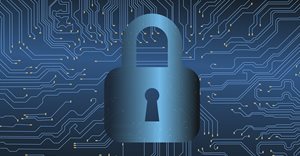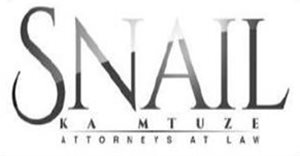
Subscribe & Follow
Jobs
- Estate and Trust Administrator Mossel Bay
- Debtors Clerk George
- Debtors Clerk George
e-signatures are lawful identification and evidence, says LAWtrust
There is evidently more to electronic signatures than a business reducing its carbon footprint or complying with corporate governance regulation. Its legal implications are often taken for granted say legal experts.
"From a legal perspective, a signature is evidence - it is an evidence that you use your name for something and adopting the content and record," explained Mark Heyink, a guest speaker at a recent information session hosted by LAWtrust and Datafinity focused on e-signatures.
The session offered an explanation of the difference between a digitised signature, digital signature and biometric signature, and extracted the legal ramifications of use in business.
Technically, these signatures are defined as:
- Electronic signature: Data attached to, incorporated in, or logically associated with other data which is intended by the user to serve as a signature. Include any e-signature, digitised as well as digital.
- Digitised signature: Digital reproduction of a handwritten signature, e.g. a faxed signature, a picture of a signature, a signature capture tablet.
- Digital signature: Technology-specific electronic signature made by using a public/private key encryption process to ensure integrity.
- Biometric signature: General description for an electronic signature made with a biometric (body measurement such as a fingerprint) as an act of authentication/acceptance.
LAWtrust affirmed that the e-signature has become ubiquitous in its application and, despite a lack of legal framework for regulation, has clear advantages that have increased its mainstream appeal.
"The advantage of electronic signatures, including advanced electronic signatures, is that the identity is evident. In other words, legally, any mark of any nature recognised as an identity is immediately apparent or obvious. Today, the e-signature is so well established that it is inevitably accepted and content adopted," added Heyink.
Benefits associated with the use of electronic signatures include the reduction in the cost of administration, a reduction in time delays from physical signatures, cost reduction estimated to be in the region of 50% and the convenience of instant, widespread approval.
Measurable value
For a business, the investment in electronic signature technology and applications translates into measurable value, such as automated workflow, faster processing and turnaround times, better customer service, less risk to the organisation and users because of the established security and audit trail.
IT security companies in the business of electronic signature and automated document capture solutions affirm the importance of minimising human intervention and reducing paper use to boost the efficiency of business.
Paul Wright, sales director of Datafinity, said that businesses invest billions in ERP, ECM and electronic mails, but capturing a "wet" signature seriously impedes the value of these solutions in the workplace.
"Signature pads find application at counters and PoS (Point of Sale) terminals. The inherent benefit of this technology is being able to reduce paper receipts and aid businesses by recording and maintaining digital records. These devices feature LCD technology, are uniquely secured, facilitate complete biometric capture and offers the unique ability to display the document being signed on the device itself," added Wright.
The main objective in using signature pads at counters and cash registers is to reduce to a minimum, or completely eradicate, the paper receipts that need to be stored in business transactions based on signed documents.
"As a general rule, our products are used with credit card payments or when payment is made in the field, as well as with multiple services (mobile top-ups, car rentals, self-service situations, etc.) and also at bank counters in order to sign deposit, withdrawal and money transfer slips," Wright said.
Take heed of the fact that electronic signatures are legal
Legal experts went a step further in their deliberation and advised companies to take heed of the fact that electronic signatures are legal and there are specific considerations that must be kept in mind in order to enjoy the benefits.
Maeson Maherry, solutions director of LAWtrust, said in order to reduce personal and company risk, a signature must be a positive act of acceptance, visible and clear, must identify the individual and must be verifiable.
"A good signature will fulfil all these criteria and ultimately be verifiable impartially, forensically and mathematically," he said.
"We are moving into a new era of signatures and legal identification. Infrastructure like the signature pad adds substantial value in providing users with an easily managed device that eliminates the need to introduce data manually, that enhances CRM and ERP, and encourages audit control and manageability," added Heyink.














